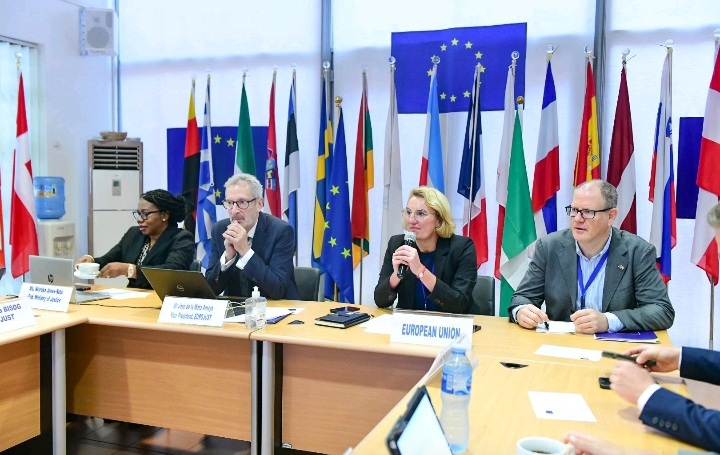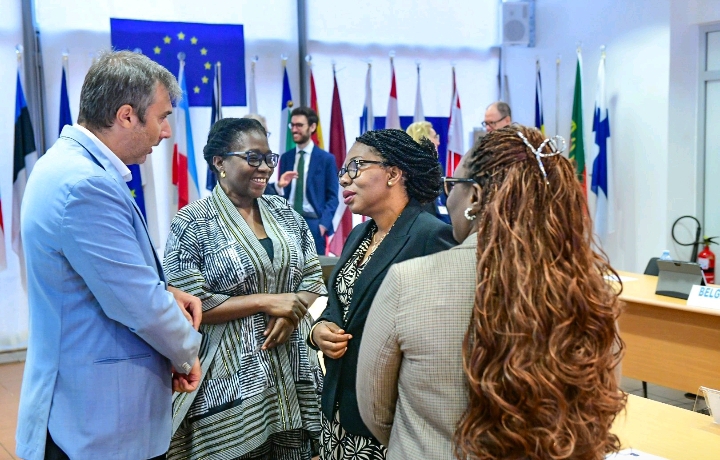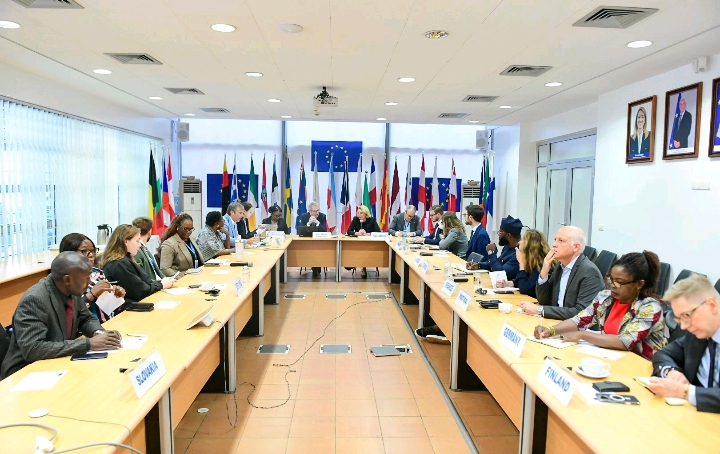A Milestone in Global Justice System ,Eurojust Visit Nigeria, seek Cooperation on Legal System.
By Raymond Enoch
When senior officials from Eurojust, the European Union’s judicial cooperation agency, touched down in Nigeria, they brought more than just diplomatic handshakes and photo shops. They delivered a powerful signal, that Nigeria is no longer a fringe player in global justice—it’s becoming a partner.

This first-ever Eurojust working visit to sub-Saharan Africa marks a defining moment in Nigeria’s criminal justice evolution. It’s not merely about formal agreements—it’s about trust, mutual legal recognition, and the serious business of dismantling cross-border crime.
At its core, the Eurojust visit was about building legal bridges. From terrorism and human trafficking to cybercrime and financial fraud, Nigeria and the EU increasingly share criminal threats that defy borders.

Until now, these threats outpaced our ability to respond. Investigations were bogged down by jurisdictional red tape, diplomatic delays, and outdated frameworks. But with Nigeria now having a Eurojust contact point, the country gains real-time access to European legal systems—accelerating everything from evidence sharing to joint prosecutions.
This visit also carries deep symbolic weight. It positions Nigeria as a regional leader in judicial diplomacy—a role long hindered by domestic inefficiencies. The message is clear: the international community sees Nigeria not just as a recipient of justice aid, but as a collaborator in ensuring transnational justice.

Eurojust doesn’t partner lightly. That it has chosen Nigeria is a vote of confidence—one that must now be earned through reforms, accountability, and consistency.
Experts say “let’s not mistake the visit for victory” .The partnership’s success depends on Nigeria’s ability to:
Modernize its justice system: Paper-based case files and slow court processes remain obstacles.
Protect judicial independence: Cooperation requires clean hands—political interference and corruption will stall progress.
Invest in prosecution and policing capacity: Without skilled professionals and proper tools, Eurojust channels may go underutilized.
It’s also a stress test for Nigeria’s data systems. Mutual legal cooperation demands secure, digitized, and interoperable platforms—an area where Nigeria still lags behind many of its African peers.
Beyond Nigeria, this visit could ignite broader continental change. If Nigeria’s collaboration with Eurojust proves effective, it may inspire similar partnerships across Ghana, Kenya, South Africa, and Senegal—creating a pan-African judicial network linked to Europe.
It’s the beginnings of what one could call a “Global South–Global North legal corridor.”
The Eurojust visit is not just a diplomatic courtesy—it is an invitation to Nigeria to rise to its legal potential. Accepting that invitation means moving from rhetoric to reform, from delays to delivery, and from insularity to international cooperation.
Nigeria is on the justice map. Now, it must prove that it belongs there.







